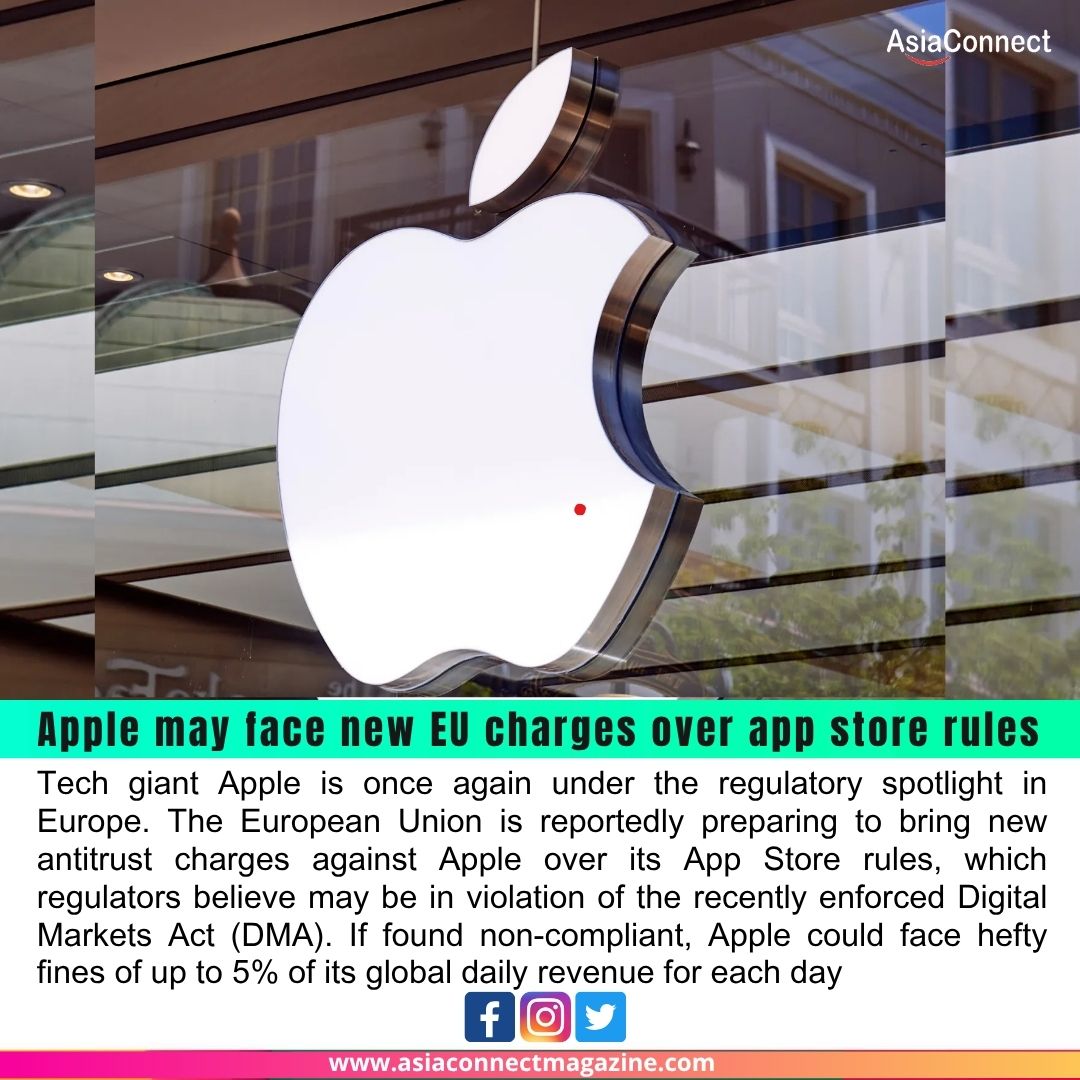Tech giant Apple is once again under the regulatory spotlight in Europe. The European Union is reportedly preparing to bring new antitrust charges against Apple over its App Store rules, which regulators believe may be in violation of the recently enforced Digital Markets Act (DMA). If found non-compliant, Apple could face hefty fines of up to 5% of its global daily revenue for each day it continues to breach EU regulations.
This potential penalty could translate into millions of dollars per day, underscoring the seriousness of the EU’s crackdown on what it considers anti-competitive practices in the digital economy.
The EU’s Ongoing Scrutiny of Apple
The EU’s concerns revolve around Apple’s control over app distribution on iOS devices, particularly the restrictions placed on third-party app stores and developers. The Digital Markets Act, which came into effect in March 2024, mandates that designated “gatekeepers” like Apple must allow fair competition, enable alternative payment systems, and ensure interoperability with third-party services.
While Apple has made some changes—such as introducing new fee structures and limited third-party app store access in Europe—EU regulators reportedly believe these adjustments do not go far enough. In fact, initial investigations suggest that Apple’s new policies may continue to discourage app developers from offering alternative options due to high fees and technical limitations.
What Is at Stake for Apple?
If the EU formally charges Apple and the company is found to be non-compliant with the DMA, the fines could reach 5% of its average daily worldwide turnover. For a company like Apple, whose global revenue exceeded $383 billion in 2023, this could mean daily penalties in the range of $50 million or more.
This would be a significant financial blow and a reputational risk for Apple, which has faced multiple antitrust probes around the world over similar issues related to App Store dominance, payment policies, and competition restrictions.
Developers and Consumers at the Center
At the heart of this issue is the developer community, many of whom have long criticized Apple’s 30% commission fees and tight control over iOS app distribution. The EU’s actions are intended to create a more level playing field, ensuring that developers can reach consumers without unfair barriers or excessive costs.
For consumers, the enforcement of the DMA could result in more choices, lower prices, and access to apps from alternative sources, potentially enhancing the overall user experience on Apple devices.
Looking Ahead
This latest move from the EU highlights the growing global pressure on Big Tech companies to adapt to new regulatory frameworks. Apple, along with other tech giants like Google, Amazon, and Meta, has been designated as a gatekeeper under the DMA and is expected to fully comply with its provisions.
While Apple may challenge the charges or appeal any decision, the possibility of steep fines and increased regulatory oversight signals a new era of accountability for digital platforms.
Conclusion
The European Union’s potential antitrust charges against Apple over its App Store policies mark a pivotal moment in the enforcement of the Digital Markets Act. As the EU continues to push for fair competition in the digital economy, Apple must navigate carefully to avoid daily fines of up to 5% of global revenue and ensure long-term compliance with evolving global standards.





